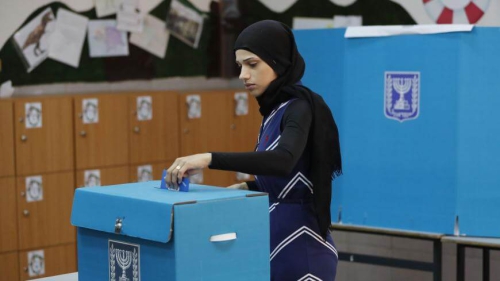Awakening the Sleeping Millions
There may be good reasons not to vote for a particular candidate, but there is no reason to not vote at all. Voting means influencing politicians who make policies that affect our lives. A community that doesn't vote cannot influence policy-making; it can scream out loud but it will not be heard in the United States.
Yet, unfortunately, to vote or not to vote is an issue for many American Muslims. Why do these sleeping millions not vote? They do not vote because of their historical and cultural experiences, misunderstanding of Islam's emphasis on social justice, and socioeconomic situations.
Because of the historical legacy of racism, some Muslims have developed an outlook that their voting will change nothing. They have a point: Three decades after the Civil Rights movement, 22 million African-Americans don't have a single representative in the U.S. Senate. What then can 8 million Muslims do by voting? True, this is a big bug in a democracy in which the majority votes determine the electoral results.
A second group of Muslims are apathetic to political participation because of their cultural experiences and socioeconomic situations. Some of these Muslims are immigrants from countries where political debate is totally absent.
A third group resent politics because their goal is to live simple, pious lives. They avoid any talk that has a smell of politics. They do not, however, understand that politics is the art of the possible and that politics is the most fundamental dynamic of change in a democratic society. It is a fallacy that people can live pious lives in a society in which political decisions can endanger their lives, expose their children to anti-values, and use their taxes in sponsoring injustice.
The rest of the Muslims that are apathetic to political participation are the majority, like the majority of their fellow Americans, overworked, silent, passive, or too busy making money or making ends meet. They do not have time to spend on politics.
All these groups of Muslims, however, have a great potential for awakening. To wake them up, Muslim activists must enter their universe of discourse, build rapport, and talk to them in the language they understand. Interpersonal and small group approaches have a limited reach but are more effective than mass meetings.
From a communication studies perspective, however, it takes a lot more than just meeting people interpersonally or in small groups. Muslim activists who want others to join their ranks must be good examples of Muslims themselves. That will give them high ethos or credibility to communicate. Once they have this ethos, they should meet or invite others in small groups at a time, identify with them (establish common ground), and let them see the social, economic, cultural, and religious benefits of political participation. They must approach all with passion, compassion, reason, humility, and examples.
Even though the U.S. democracy has a lot of deficiencies, it is an open system that is susceptible to change. Currently, we may have difficulty electing a Muslim to the U.S. Senate, but we can certainly help someone like Tom Campbell who has a fair agenda. We can also get elected or can have much more influence in smaller constituencies other than the presidency and the senate. After all, the policies that affect our lives are not made or engineered by the president or the senate alone.
According to a saying of the Prophet Muhammad, Muslims must stop an injustice by hand, protest it by word, or, in the least, detest it in heart. Once you show the relevance of this Prophetic direction to issues of injustice (e.g., secret evidence, airport profiling, or discrimination for beard or headscarf), Muslims begin to understand what is at stake. And once you show them the examples of how Muslim voting/support has won the good will of Congressmen David Bonior and Tom Campbell, they begin to see that participation in the political process is meaningful.
From a social psychological or communication perspective, the most important aspect of attitude change is exposure. As naïve it may sound, the very exposure to something does set in motion a dynamic of innocent liking. That is why the people who are most seen, or exposed on TV to a mass audience, usually become celebrities. In other words, familiarity breeds liking, not contempt.
We know that several minority communities in the U.S. have earned lots of favors from presidents and lawmakers through their participation in elections. The choice is ours: we can get some positive results by engaging in politics -- i.e., by voting, by sending delegates to party conventions, and raising our issues therein -- or get nothing by sitting idle.
I strongly believe the sleeping millions of American Muslims are willing and able to wake up once they are given the challenge of political engagement in the right perspective. Activist Muslims, it's now your job to do more of your fair share, especially during this election season. Looking back, you can see many miles that you have traversed toward political empowerment of the Muslim community, yet you must look forward. You have miles to go before you sleep.

















